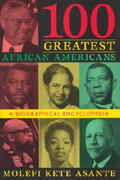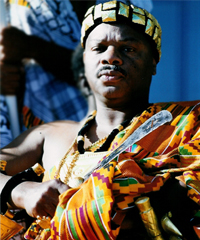As I have discussed in previous entries, with any worldview there are extremists. There is the extreme feminist, even among Christians. The radical feminist theologian challenges the authority of the Bible by judging it from her point of view. She also considers the Bible just as inspired as other texts and uses them equally to inform her views.
The extreme Afrocentrist is a black supremacist. She believes that people of African descent are superior to those of other races in all ways, including intellect and culture. It is dangerous to align yourself with either theory because of the extremes. I took a leap and called myself, for the most part, an Afrocentrist, because of Dr. Asante’s emphasis to bring Afrocentrism to the table along with other views; this has been his original intent.
Some may say I should be brave and call myself a feminist. After all, “You do believe in women’s rights.” And even though it seems a newspaper first called women advocating women’s rights feminists (http://tinyurl.com/dc88a7) , and not the women themselves, I am still hesitant because I don’t agree with some major issues being advocated, such as all the tentacles placed under reproductive rights (like abortion rights and contraception as birth control). Must I use a term determined for me just because it seems accurate or do I determine the label based on my prescribed priorities?
I keep asking myself, “Why, Christian, do you look to the world to name and define you when God has already given you parameters in His holy word?” While I cannot deny the racial and gender experiences that I have had in this world, I must use as a starting point the book that has declared me a new creation (2 Corinthians 5:17). God has prescribed priorities for me, and these are where I need to get my labels. So as I continue to develop a new theory for the Christian who is female and black, I will base what my focus should be and how I should be treated based upon what God says about Christian women and blacks. The next few entries should be really interesting. In the meantime, check out some of the Scriptures that have helped to inform my view: Psalm 9:9, 10:18, 103:6; Isaiah 58:6; Acts 2:17-18, 10:38; Ezekiel 22:29-31; Titus 2:3-5; Jeremiah 9:17-21; Leviticus 19:15; Ephesians 4:11; Galatians 3:28).
Copyright 2009 by Rhonda J. Smith


